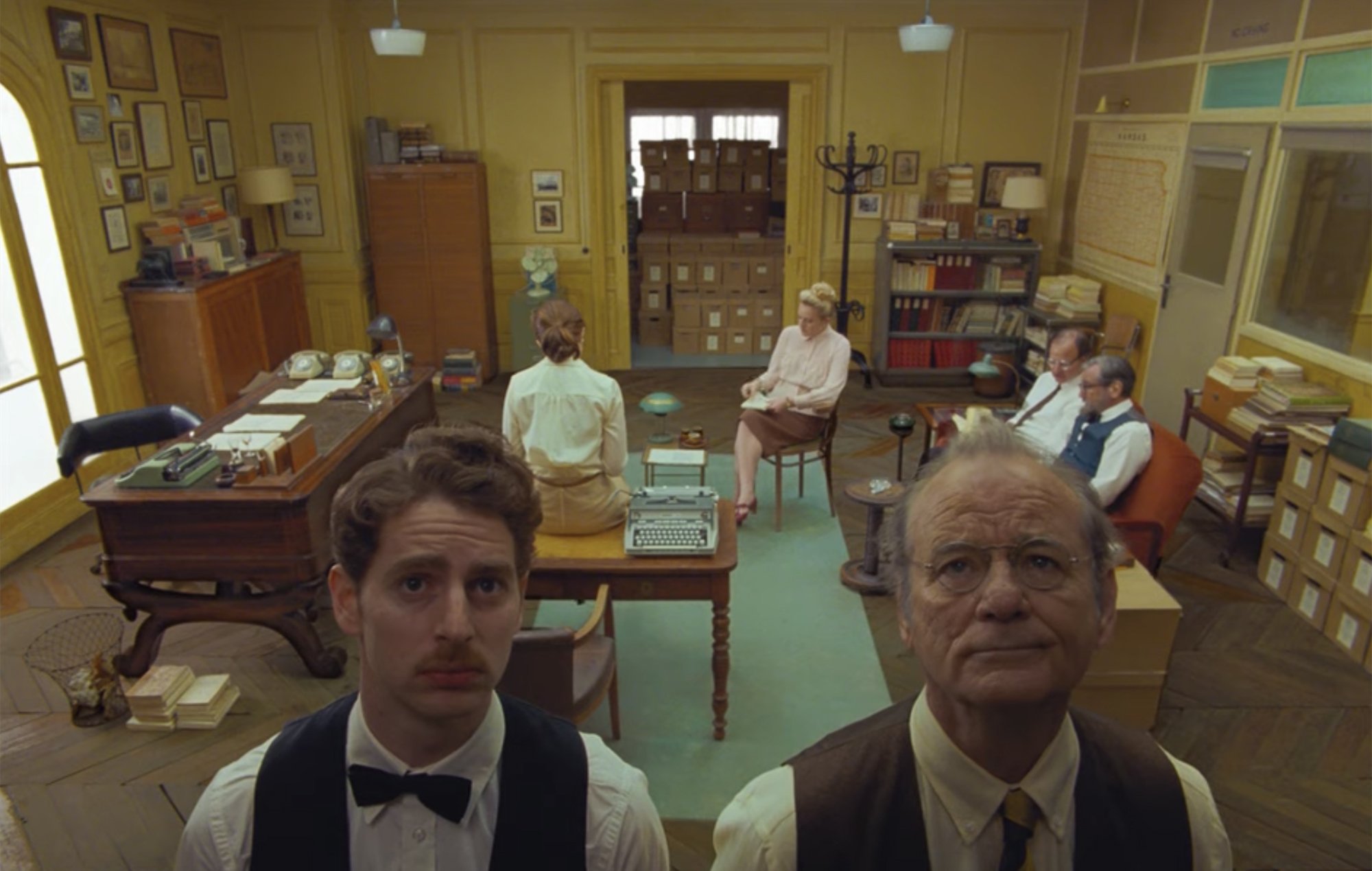Review by Zach Dennis
It’s pretty easy to dismiss director Wes Anderson’s work as window dressing or dollhouses with lots of intricacy but not much depth. But that would be misreading a lot of his work.
A lot of his best recent work — Moonrise Kingdom, Fantastic Mr. Fox, The Grand Budapest Hotel and his latest, The French Dispatch — are all attuned to a melancholic nostalgia for a rose-colored past. Whether that’s a fair assessment of time or not, these films feel reflective of a specific time for specific people rather than a wide-ranging view of the period for most people.
The same can be said about the response to Anderson’s films. Especially with The French Dispatch, the director has pivoted into a love it or hate it period of his career. The end product of Dispatch feels meticulously coordinated to Anderson’s sensibilities, almost becoming a parody of his own career. But at the same time, this effect feels arcane in a medium that’s theatrical output has favored a ubiquitous visual palette rather than individuality.
While it might become exhausting to watch Anderson flex symmetry in each of his frames or queue up a scene with an obscure French pop song, there has to be a degree of charm elicited from the director’s attempt to at least evoke a type of tangible vision that isn’t seen much in theaters or on-demand today. References to the French New Wave and Jacques Tati are obvious in Dispatch, but even more, Anderson seems to be working on a plane that is not all that unique in the grand oeuvre of cinema but is wholly unique for the present day.
It’s not completely out of left-field then that Anderson decided to pay homage to 20th century print journalism, a medium so ingrained the excesses of the past that it seemed natural to garner the director’s touch.
Dispatch follows a pair of smaller pieces along with three major storylines that are feature stories from three of the major reporters at this France-based magazine for subscribers of a Kansas newspaper. The whole venture is built out of the arrogance of its editor (played by Bill Murray), who wanted to use his father’s connections at the Kansas newspaper to hob-nob in France for multiple decades under the veneer of getting to the real story.
Not to say any of the works are bad, but “important” may be a stretch. The first story follows an incarcerated artist who is discovered by an also incarcerated art dealer, who brings the man to worldwide fame for his work. The second follows a youth revolution and the leader behind it, while the third follows a dinner party with a police captain that leads to an abduction and hostage situation.
All three lean on the personalities of their reporters, each fixtures in their respective scenes and bloated the tales because readers will want to hold onto their every word. But in both instances — print journalism like this and the work of Wes Anderson — there is a bit of room for humanity under their lavish facades.
Both can be viewed as lost vestiges of a different age, and that’s fair. In the case of print journalism, the writing personalities have not gone away but have filtered into different mediums of journalism rather than the pages of The New Yorker. In the case of Anderson, his style has at least popped up in influence in other places but still has real value in its form here. There’s something impactful of the way he’s able to weave this melancholy in between the pastel colors and perceived fakeness around the worlds he creates. Characters are always wounded and sad, near broken and just trying to hold on. In that way, journalists can find a kinship.
But more importantly, Anderson, and specifically The French Dispatch, feels like something lost. It may have short mileage for some, but there’s a charm and a singularity to the director’s work that doesn’t have a clear next path or inspirations around it just yet and that’s something to hold onto for the moment.

